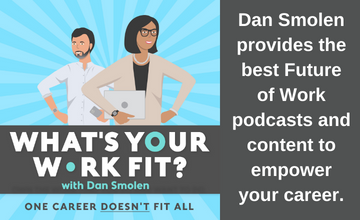Podcast: Play in new window | Download (Duration: 36:22 — 41.6MB)
Neurocentricity and recruitment align the corporate mission to meaningful work.
“We’re looking at a world of more empathetic buying, empathetic recruitment, empathetic reading, empathetic leadership. It is absolutely the way of the future. It is allowing anyone who is connected to a common cause to feel respected and safe in a way that will change the world.”
– Adrienne Shoch, Corporate Performance Expert and Founder of 5 to 1 Consulting
An unusual alignment of forces is taking hold in today’s workplace, one that merges the needs of hiring managers and the express wants and desires of professionals. The alignment is aided by what our guest, performance expert Adrienne Shoch, calls neurocentrity, the dynamics that encapsulate how we relate to the world and what allows us to thrive. The merger has ushered in a new era of empathetic recruitment.
In this episode, Shoch:
- Defines the concept of neurocentricity [starts at 1:25]
- Describes empathetic recruitment [starts at 6:55]
- Discusses the importance of workplace flexibility [starts at 22:24]
- Relays the importance of BREATHING [starts at 30:33]
- Describes a future built around workplace empathy [starts at 33:31]
About our guest: Adrienne Shoch is the founder of 5 to 1 Consulting. By employing holistic, performance-focused practices, Shoch helps clients to understand how the brain, body, and language influence workforce behavior and decision-making. What is more, she empowers company leaders to effectively apply “generated from within us” skills and behaviors to build trust, inspire, and lead team members to overcome highly stressful situations and complex business contexts.
Adrienne Shoch received a Bachelor of Science in Business Administration from Towson University. She studied French at University of Paris – Sorbonne and Neuroleadership at the Neuroleadership Institute. She lives and works in Washington, D.C.
EPISODE DATE: November 30, 2018
Social media:
